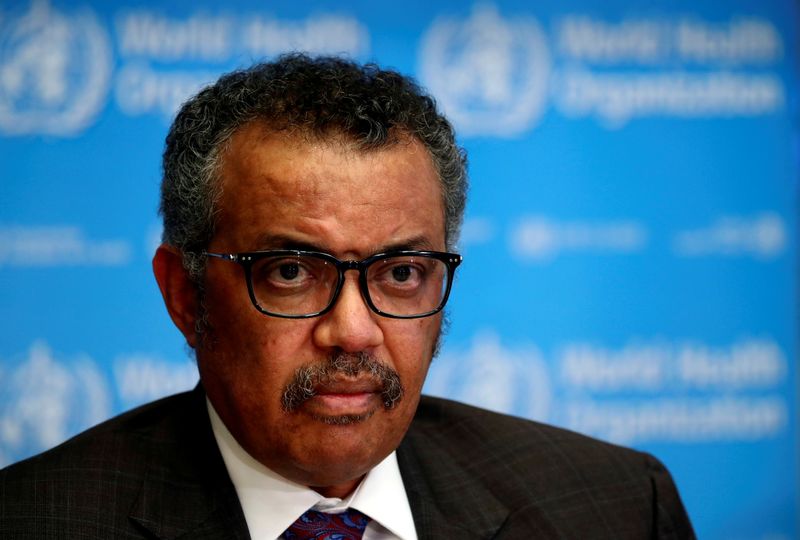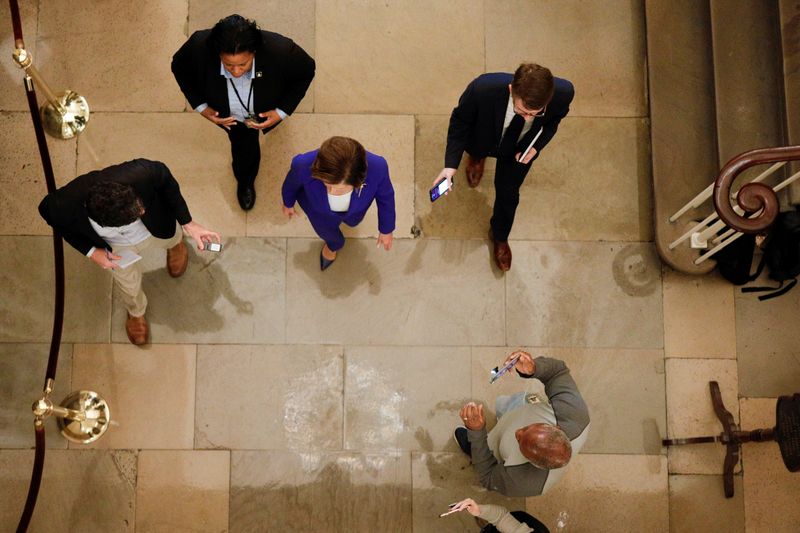
FILE PHOTO: Director General of the World Health Organization (WHO) Tedros Adhanom Ghebreyesus attends a news conference on the situation of the coronavirus (COVID-2019), in Geneva, Switzerland, February 28, 2020. REUTERS/Denis Balibouse/File Photo
March 27, 2020
By Stephanie Nebehay and Kate Kelland
GENEVA/LONDON (Reuters) – Coronavirus has infected more than half a million people and killed 20,000 worldwide, the head of the World Health Organization (WHO) said on Friday, as he appealed again for protective gear for medical staff working to save lives.
Tedros Adhanom Ghebreyesus, WHO director-general, also urged countries to refrain from using medicines that have not been demonstrated to be effective against COVID-19, the disease caused by the virus.
“The chronic global shortage of personal protective gear is now one of most urgent threats to our collective ability to save lives,” Tedros told a Geneva news conference.
“Health workers in low- and middle-income countries deserve the same protection as those in the wealthiest countries,” he added.
Elderly people and those with underlying medical conditions have been the hardest hit by the epidemic, but 10 to 15% of people under the age of 50 will have moderate to severe infection, said Dr. Mike Ryan, WHO’s top emergencies expert.
Asked about reports of infections in young adults, Ryan said: “For most people it is a very mild infection, most young people. But for a significant minority of people between the age of 20 and 60 this is a significant infection.”
“What is really emerging is a perception that this disease, while not fatal and not causing critical disease in a younger age group, is causing severe illness in many people,” Ryan said.
Every infection of COVID-19 presents an opportunity for onward spread, said Dr. Maria van Kerkhove.
“So even in younger populations, if you do have a mild disease and you think it’s no big deal, what the big deal is is that you may transmit to somebody else who may be part of that vulnerable population who may advance to severe disease and who may die,” she said.
Tedros, without giving specifics, thanked “various national organisations” that had provided what he called critical cyber intelligence after a rise in online scams and cyber attacks on the U.N. agency and on himself.
“Crises like this bring out the best and worst in humanity,” he said.
(Reporting by Stephanie Nebehay in Geneva and Kate Kelland in London; writing by Stephanie Nebehay, editing by Gareth Jones)

